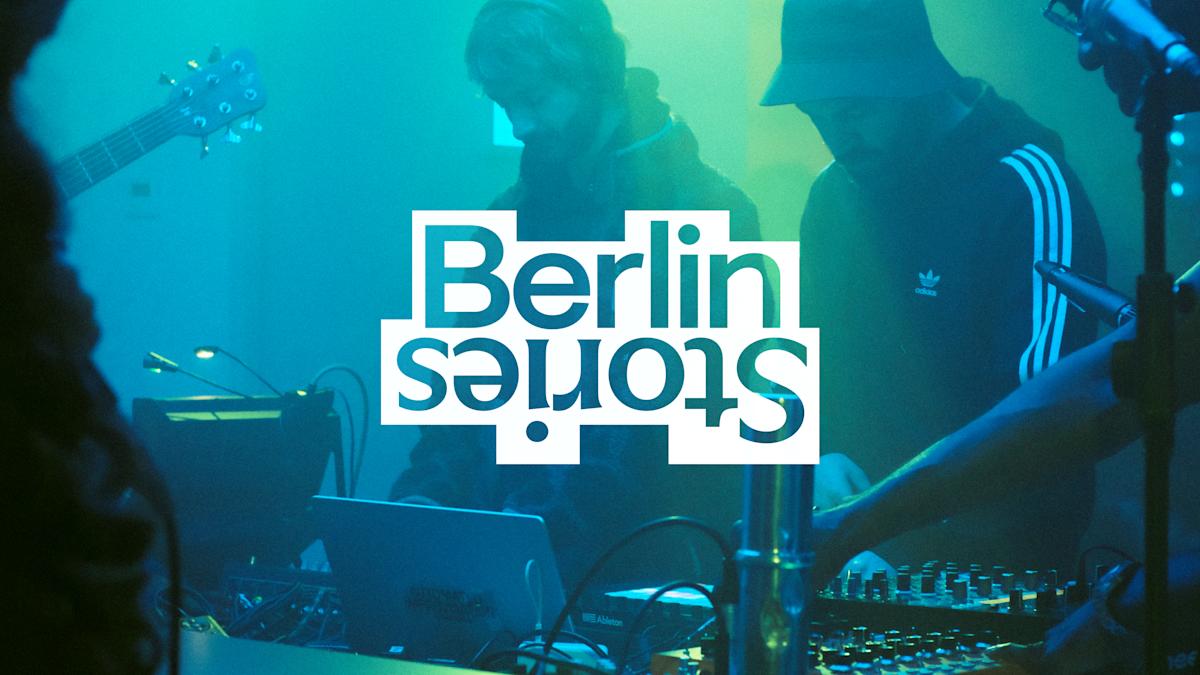
Berlin Stories
This week: Black history month, fusion soundscapes, soli kufa
Loading
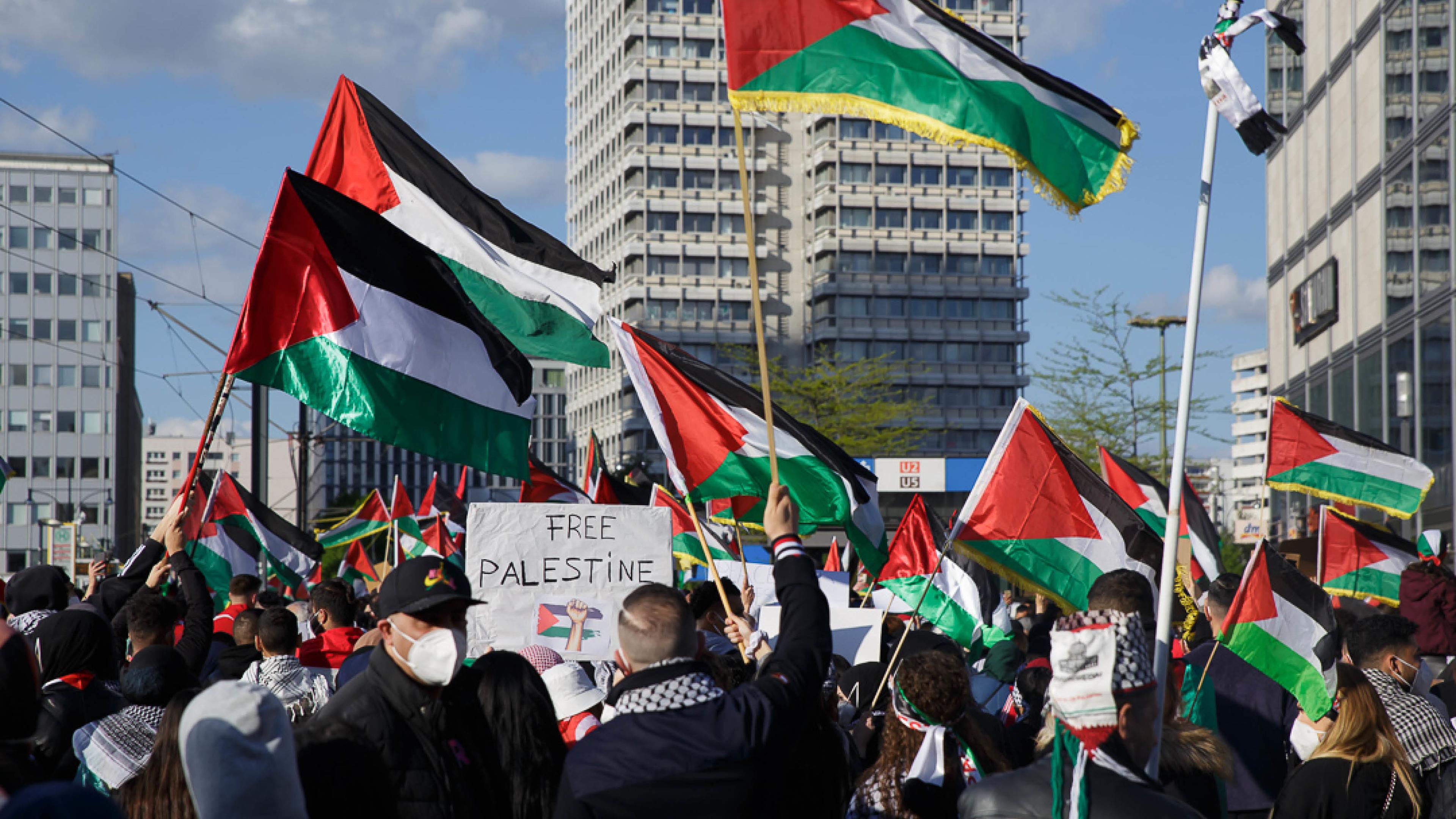
The American-Palestinian journalist discusses the state of censorship in Germany.
By Joshua De Souza Crook
Activist and writer Hebh Jamal has been flying under the radar of Germany’s political and press elite, a group she identifies as having a vested interest in smearing any discussion of Palestinian identity as an infringement against the state of Israel.
Three years ago, Jamal moved from New York to Mannheim in Germany, where she started a new life with her Palestinian-German partner. After experiencing a culture shock in the transition from New York's openness to the traditional views she faced in Baden-Württemberg, she felt compelled to document the world of Islamophobia, censorship and injustice transpiring in front of her. Jamal made her political debut fighting inequality as a teenager in The New York Times and Teen Vogue, and has continued her work as a social commentator both in America and Germany.
In the past year, Jamal's work has documented the state of censorship in modern Germany and has been featured in Al Jazeera and +972 Magazine. With the prosecution of some of the many activists arrested at last year's Nakba Day demonstration in Berlin ongoing, Jamal reflects on the struggles that Palestinians endure to exist in this country.
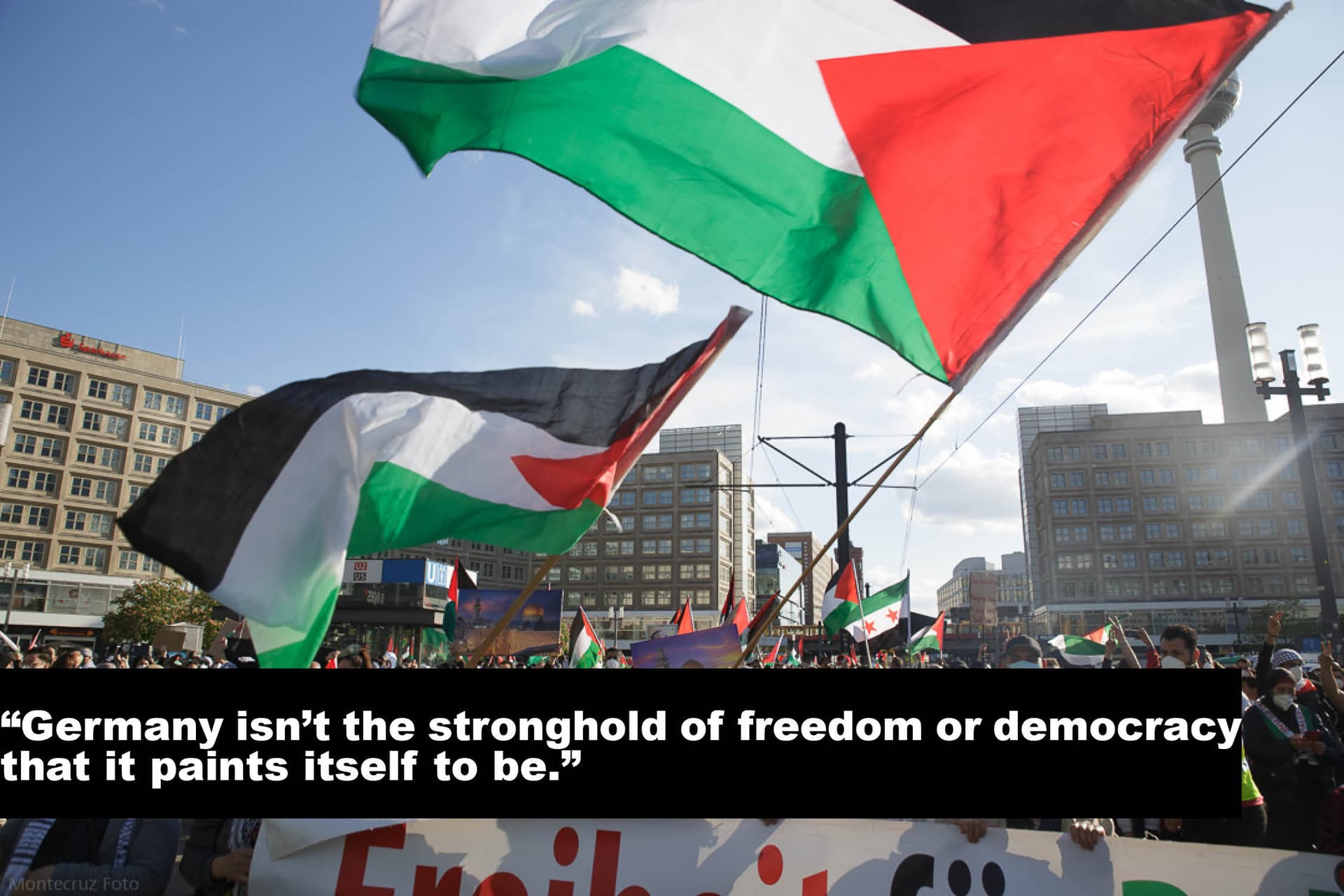
Hebh, can you tell us a little bit about yourself, your background, and how you got into journalism and writing?
I am a Palestinian-American from the Bronx, New York City. I always had this idea of going into academia, teaching or writing. But I realized academia is actually a very systemically racist structure. I felt like it would be very difficult for me as a hijabi, a full-blown Palestinian woman to make it. So instead of subjecting myself to potential racism, I thought I might as well write but without a title. I want to document the experience and suppression of Palestinians here and I’ve been busy–Germany has kept me very busy!
I essentially gave myself a timeline to make it as a writer here. I wanted to feature the voices of people who are similar to me, and who have had a similar experience. You could say it is an almost selfish endeavour to tell the story of my identity and how it has been extremely politicized here.
What is your first memory of Palestine or being Palestinian?
My first memory of being Palestinian was in 5th grade, prior to that I didn’t really understand what it meant to be a Palestinian. I was in Middle School in the Bronx, and a teacher came up to me and asked me: "Where are your family from?" I knew I was Palestinian, my parents had obviously told me by this point. But I was 11 years old and this teacher threw the whole Palestinian-Israeli issue in my face. He asked me: "What is it with Palestinians fighting over a land that is smaller than Brooklyn?"
I didn’t know what to say, this was kind of crazy. He told me he was an Israeli and wanted to fight in the IDF. I was shocked! My whole being and identity were being hyper-politicized by this man who was over three decades older than me at the time.
After that, I began to understand more about where I was from and how being Palestinian is treated everywhere in the world. I didn’t speak to anybody, not even my family, about what happened. It took me a few years to reflect on this and understand how it impacted me at age 11. It was an uncomfortable situation, especially at that age when you listen to everyone older than you because they are 'smarter' and 'brighter.'
This teacher never really presented an argument to me on the situation. It was more like a "your people are ridiculous" kind of thing. There wasn’t any room for an argument. It wasn’t something I could make sense of at the time, but later I began to notice that this is part of a much larger epidemic in the West.
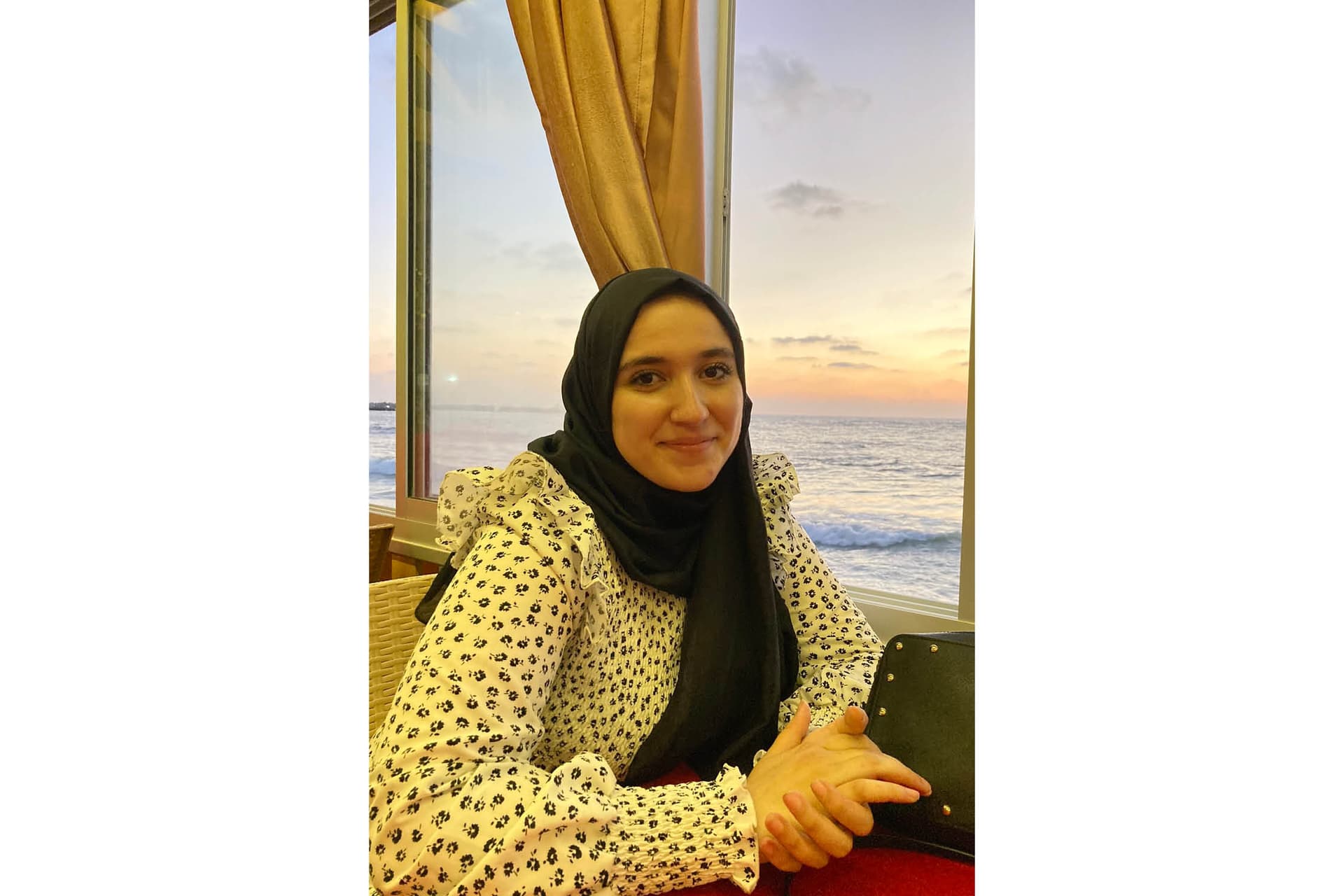
Prior to moving, what was your understanding of Berlin and Germany? Has it changed at all since moving?
My expectations were very different from the reality I found. I didn’t expect my whole identity to be criminalized to the point that saying almost anything would be considered a crime. Thankfully I’m not in a position where I have to rely on any German institution or organization to provide me with income or stability. I’m not afraid to say what I see, even when they try to call me antisemitic. My position won’t be jeopardized if I speak out, which sadly isn’t the case for so many other Palestinian Germans here.
What I really didn’t expect was this degree of Islamophobia. I’m a Muslim, a hijabi, and this is the first thing that people see. I don’t even get a chance to express myself before somebody has made up their mind and starts criticizing me.
Every time I go outside without my partner I get harassed on the streets. I try not to leave the house by myself but sometimes I have to force myself. I feel completely unable to operate within this system without someone making a comment or smirking. Even in Mannheim which is very diverse and inclusive, I still feel uncomfortable whenever I encounter white Germans. I never felt like this in New York. Even after 9/11 when there were many incidences of Islamophobia, I never felt it to this degree.
Yet Germany is often considered a free and liberal democratic culture in much of the world’s media.
Germany loves to present itself as the free-thinker of Europe, like it's Europe’s role model and that the world should turn to it for guidance. How many conversations have you heard about how America should learn from Germany with regard to its remembrance culture? When in fact this same remembrance culture is based on the idea that you cannot criticize the state of Israel without being antisemitic.
On every level of German society, from the education system to politics, Germany intentionally censors Palestinian voices in the name of fighting antisemitism. In some cases, the actual existence of somebody considered Palestinian is considered antisemitic. Almost every single individual that I have spoken to (while researching a story) has said explicitly that their identity was attacked and criminalized in school. One student I spoke to said that she was told by a teacher she shouldn’t refer to herself as Palestinian, instead, she should refer to herself as Jordanian. She was told that she shouldn’t wear her keffiyeh to school as it is a terrorist scarf. You can find these examples across society in Germany.
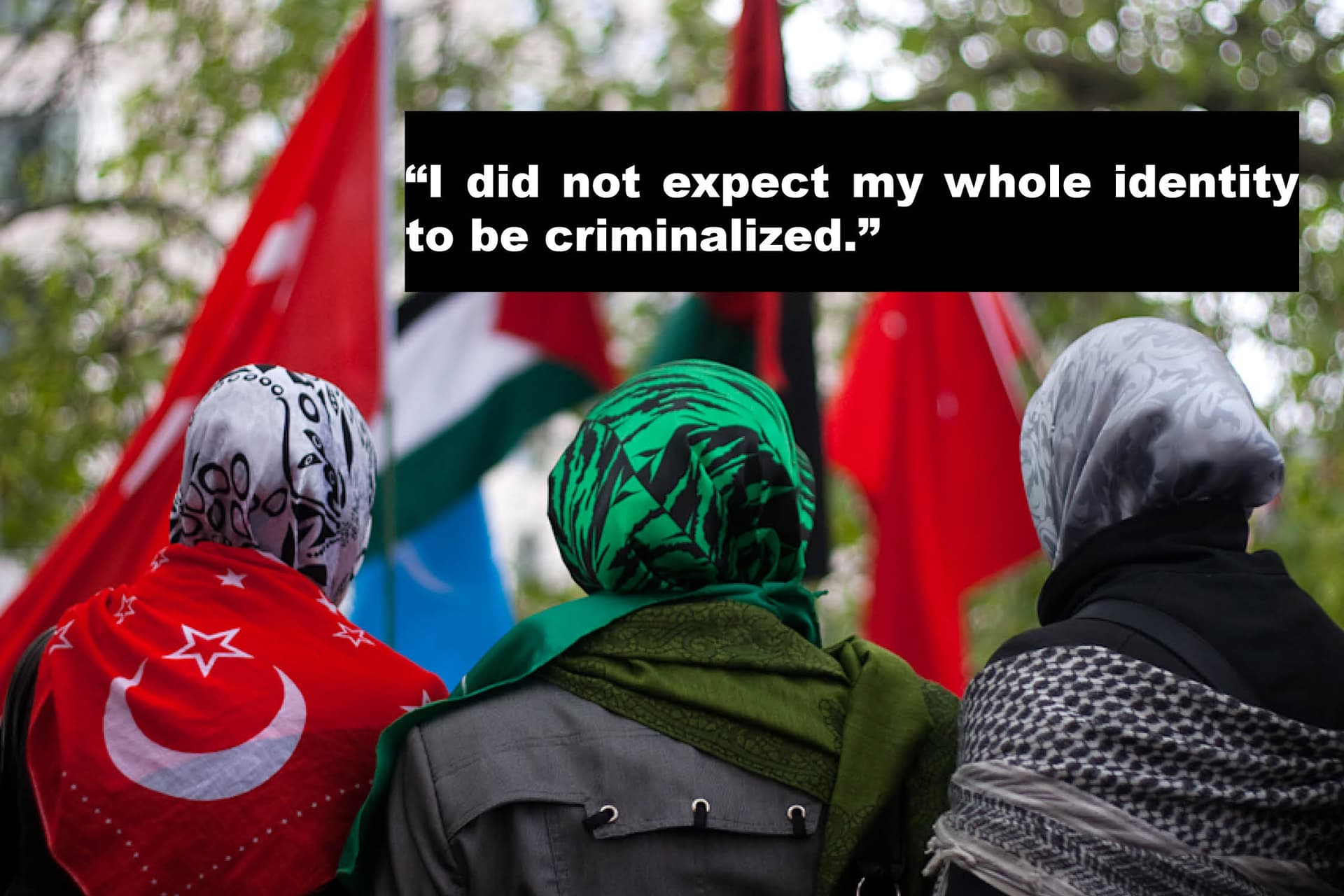
Berlin is believed to be home to the largest Palestinian population outside of Western Asia, mostly based in Neukölln. Censorship is a focal point of your journalism and in one +972 Magazine article, you discuss Sarah El Bulbeisi’s “tabooization” of the Palestinian experience in Switzerland and Germany. What policies do you believe are being used to limit their freedom and rights?
It isn’t a policy, but rather the entire orientation of how Germany talks about antisemitism and how they talk about the Holocaust. There is this tendency to try and "repair the damages they have done" by totally adopting a Zionist mentality. An example is Angela Merkel’s speech in March 2008 before the Israeli Parliament, where she stated that Israel's security was "Germany's reason of State." This speech set a precedent of Germany completely defending everything that Israel does. In order to protect Israel, they also have to suppress Palestine and Palestinian voices, identities, academics and artists.
That has trickled down to a lot of institutions. For example, recently at Documenta 15, there was a huge media onslaught against Palestinian artists and others who were in solidarity with Palestine. There was a smear campaign against these individuals, essentially pointing them out to be antisemitic. Another key issue is Germany’s adoption of the IHRA definition of antisemitism which conflates anti-Zionism with antisemitism.
These are just a few examples of how Germany deals with antisemitism. They tend to categorize it as "imported antisemitism" that absolves Germany itself of being antisemitic, which in turn puts the blame on refugees, Arabs, Muslims and people coming into the country. They label it as a "new wave of antisemitism" that is coming from these migrants. They want to proclaim that foreigners are the problem because antisemitism no longer exists within Germans. They conflate being pro-Palestinian as being antisemitic as well, and these are only some of the most obvious and recent examples of the tabooization of the Palestinian experience. It all stems from this orientation towards the state of Israel.
Can you shed any light on how the media in Germany covers or fails to objectively cover Palestinian identity?
Axel Springer has specifically said they are pro-Israel and pro-Zionism. When you have a company like this, one that is in charge of so many different publications, saying something like this then you have already lost any sort of objectivity, even the appearance of objectivity.
Another example is Deutsche Welle, who just changed their code of conduct to include a ‘special obligation’ toward the state of Israel. This is meant to be a government-funded, objective organization that is meant to be non-ideological. What does that tell you? It tells you that any reporting on Palestine and what is happening in Israel, in the West Bank, must be taken with a grain of salt. What Germany is now doing is a disservice to the international community.
During the 2021 assault of Al-Aqsa, many citizens were killed, and many innocent children, women and men were all killed. The only kind of coverage on German television during this period was of Hamas rockets flying into Israel. That’s all there was! There was an interview with Ali Abunimah of The Electronic Intifada on Deutsche Welle during this period that was actually taken down because he pointed out these contradictions and hypocrisy.
Deutsche Welle had an internal memo that was sent throughout the company which banned certain words such as 'apartheid.' I remember speaking to one Deutsche Welle journalist who pointed out that the official name is 'occupied Palestinian territories', – but if we can’t say that Israel is the occupier then it makes no sense. It is a complete contradiction and shows you to what extent the German media will go to paint the picture of Palestinians as terrorists.
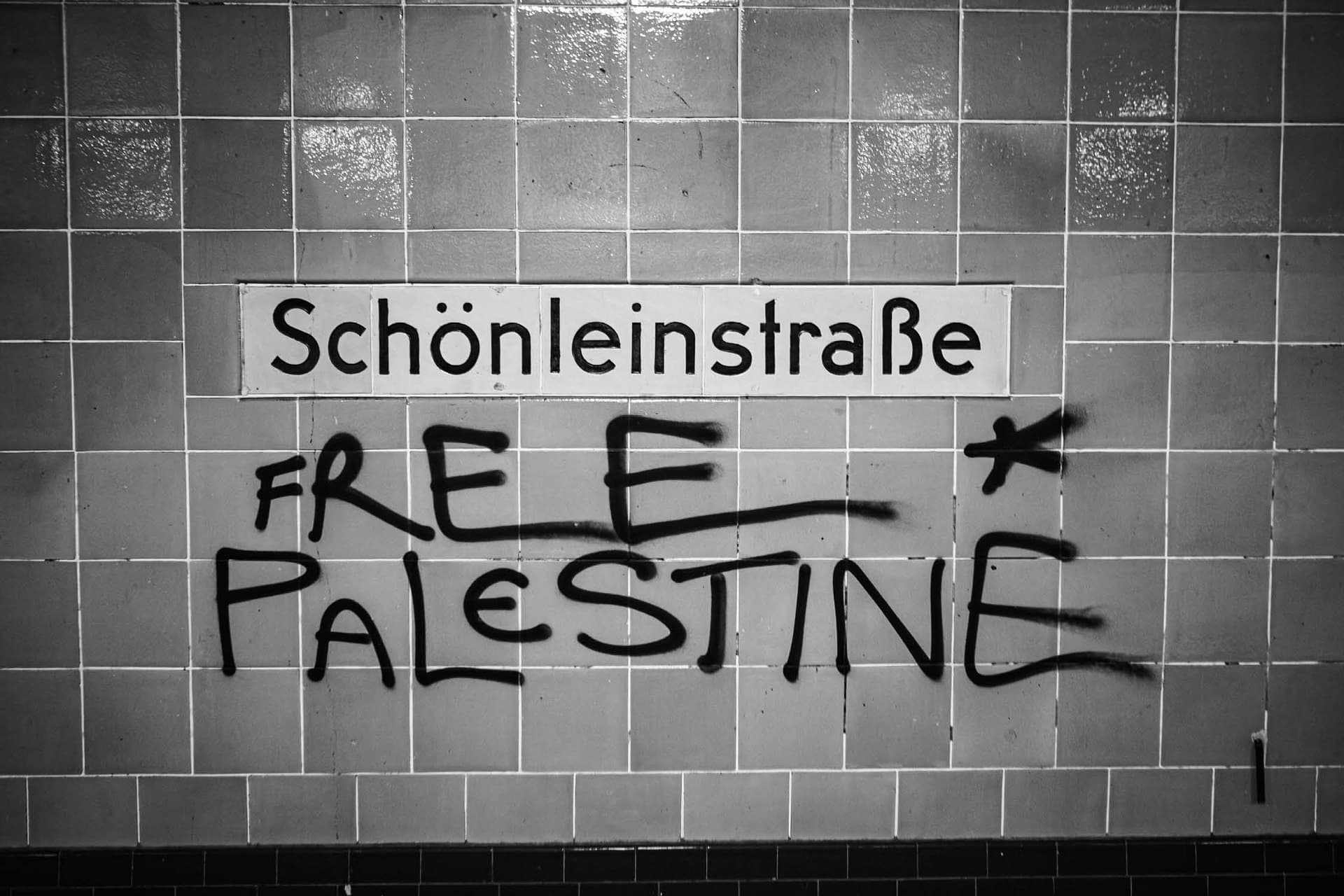
Have you experienced bottlenecks as a journalist in Germany covering these stories or communities yourself?
The biggest obstacle for me when reporting, especially when it comes to journalistic credentials, is when you are documenting people who have experienced horrible things and are too scared to go on the record. I want to respect their ability to have autonomy over what is reported and what is not, but it puts me in a delicate position where I have obtained these insane stories that I can’t share, articulate or even publish because people are scared of reprisal. This is a situation that I have encountered time and time again. In so many of my articles, I have to write "anonymous source" and I hate this because I come from an environment where injustices are always discussed. Other people are more reserved and scared of the backlash, of course, which is something that I respect, but it is also an obstacle when covering a story. If everyone could go on the record and talk about these injustices there would be so much more solidarity on the issue.
What needs to change with regard to Germany’s relationship with Palestine, both on the ground and from decision makers? How can this be done?
Honestly, I think Germany just needs to relax. They need to realize that nothing will be in jeopardy if Palestinians are given the ability to breathe or given the ability to exist. Their whole foundation won’t crumble. I don’t think there is going to be any sort of policy change here, what needs to happen is grassroots organizations forcefully opening the conversation. It will be these groups that fight for a voice, it is Palestinians on the ground or activists who advocate for this on a daily basis that will change structures.
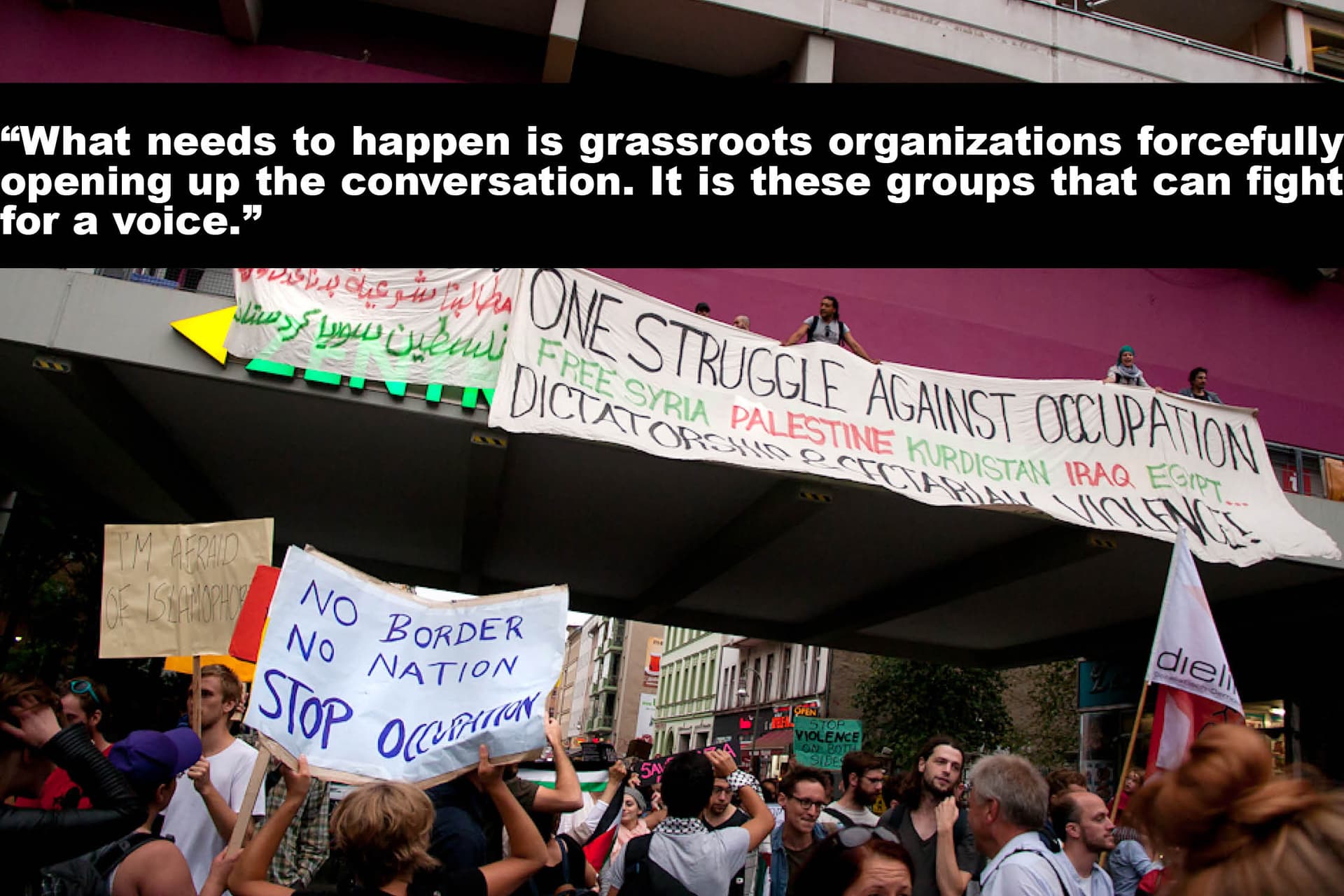
Follow Hebh Jamal on Twitter.
Images:
Free Gaza Protest, Berlin. By Montecruz Foto. (CC BY-SA 3.0)
Free Gaza Protest, Berlin. By Montecruz Foto. (CC BY-SA 3.0)
Courtesy of Hebh Jamal.
Free Gaza Protest, Berlin. By Montecruz Foto. (CC BY-SA 3.0)
Free Palestine, Schönleinstr., Berlin. By Hossam el-Hamalawy. (CC BY 2.0)
Internationalists against the war in Gaza, Berlin. By Montecruz Foto. (CC BY-SA 3.0)
Layout by Kolja Tinkova.

This week: Black history month, fusion soundscapes, soli kufa
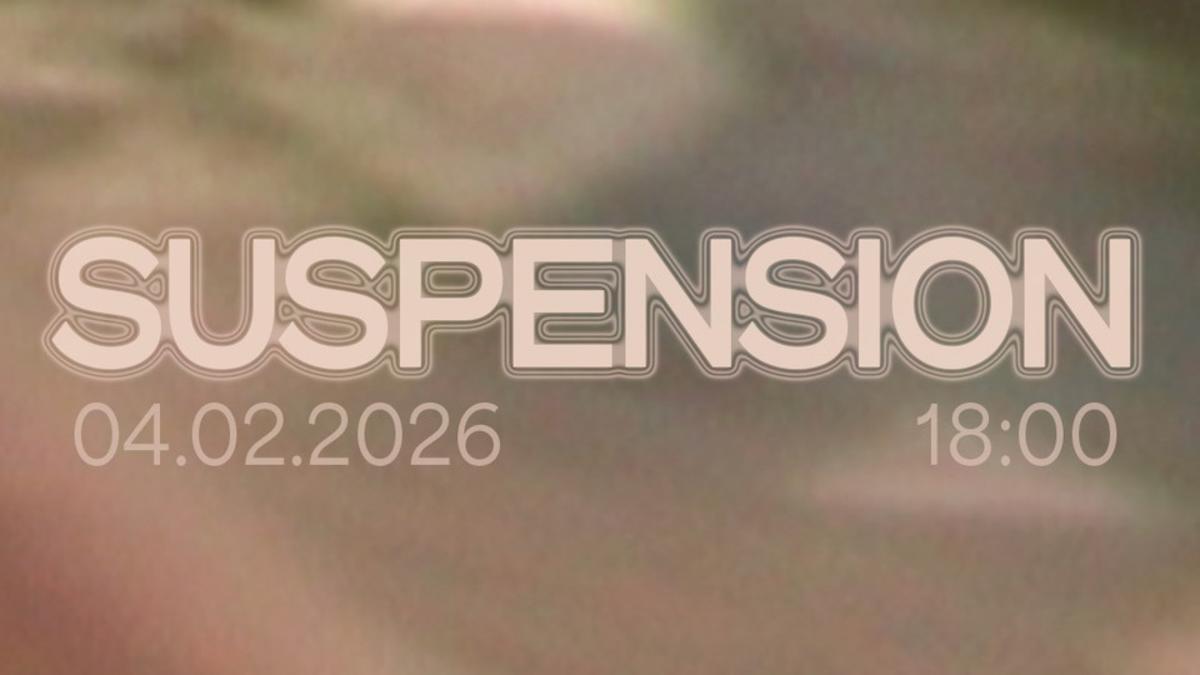
A screening, conversation, and live performance at Niemetzstraße 1.
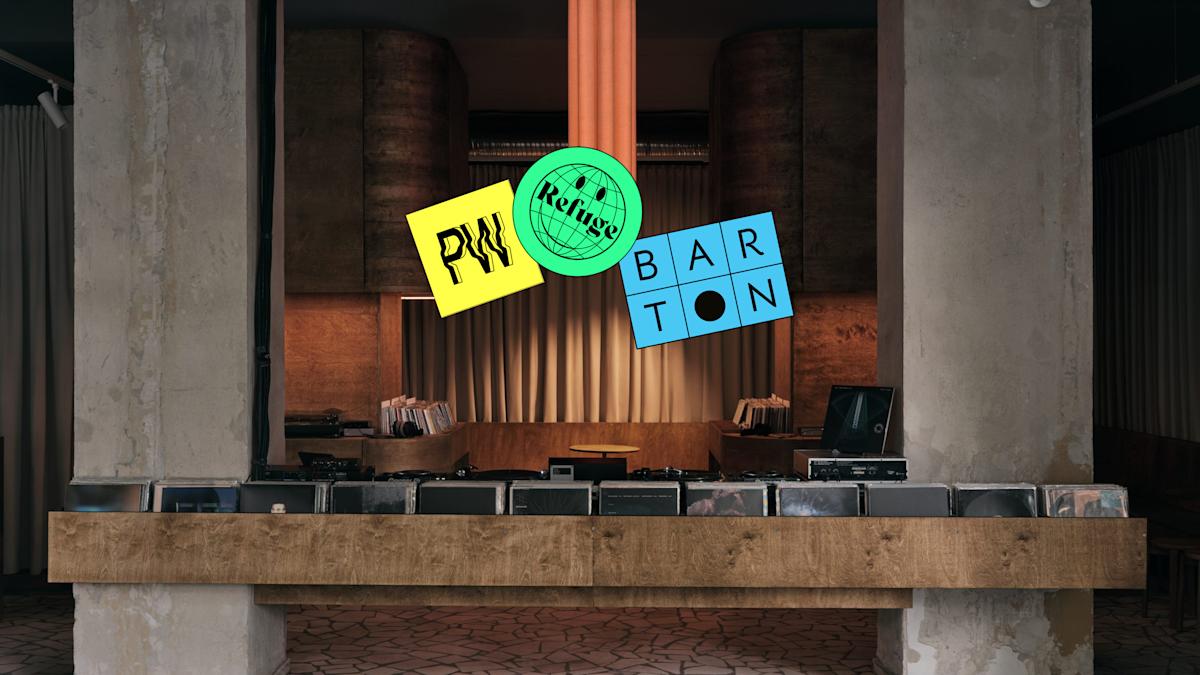
Refuge Worldwide residents head to Romania.